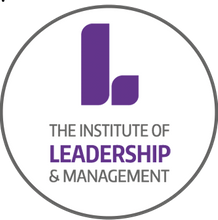One of the most important tasks in a talent pipeline should be to encourage people to pass on their skills to others. That’s what I call a ‘pay it forward’ ethos: everyone’s got something they can do for someone else. But unfortunately, organisations don’t tend to promote that outlook with enough enthusiasm – so they’re missing a trick.
Passing on skills and knowledge helps to foster a collaborative workforce. If someone has helped you along the way, then equally, when you’re hanging out at the coffee machine or having a Zoom chat, it may suddenly occur to you that there’s something you can do for the person you’re with... something that will help them become more effective or impactful.
Instilling that mentality within people at the earliest stage of their careers is crucial. One of my favourite quotes is, “Alone, we can go fast – but together, we can go far.” So, dialling in that collaborative mindset at the beginning of people’s working lives is key.
As part of that, organisations and employees must recognise that mentorship is career-stage agnostic: even when you’re in your first job, there’s always something you can pass on to the person who’s just come in behind you – and, in reverse-mentoring scenarios, the people ahead of you, too.
Running an effective talent pipeline means not having a ‘one size fits all’ approach. Think about the rise of podcasts, which really surged in popularity a couple of years ago. Listeners became more and more drawn to how podcasts take deep dives into their chosen subjects. Many people now happily regard podcasts as one of their primary sources of news-based information.
This shows us that recruiters must tell different stories that engage different people in different ways. Whether it’s social media, blogs or video, it’s about having a variety of resources at hand that will appeal to a variety of people.
We’re not sausages in a sausage machine – we’re humans. So, harness the power of your networks and communities to tell your organisation’s stories – and be passionate about getting people in your various audience groups to share theirs. And remember that what motivates one young person doesn’t necessarily motivate the next.
Sometimes it feels easier to do things the way you’ve always done them. But with such a huge range of media and networks at our fingertips, we have a great opportunity to rewrite our ways of working for the future.
Having a strong talent pipeline, with strong mentorship at its centre, will be key to maintaining the economic recovery. A strong talent pipeline is an adaptable one – because people are always learning new things and are willing to be brave and tap into new areas.
While the pandemic has knocked a lot of us off our feet and taken our breath away, we must also recognise that change brings opportunity. And strong talent pipelines will give us the adaptability we need, not only to innovate our way through this crisis – but prepare us for the next.
Voices from our community: Simone Roche MBE is founder and CEO of Northern Power Women and Northern Power Futures.




